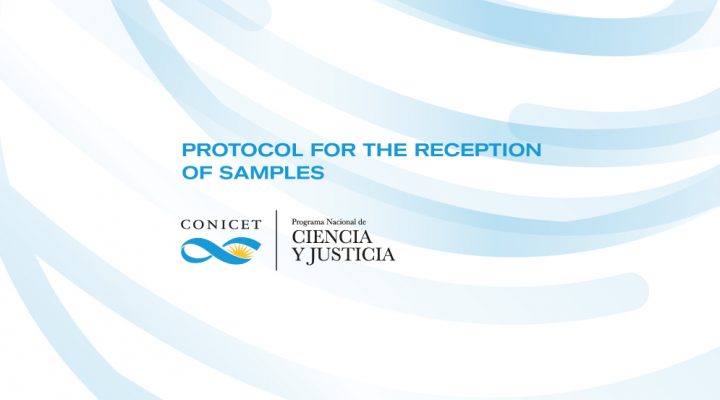NATIONAL PROGRAM FOR SCIENCE AND JUSTICE
CONICET presents a protocol for the reception of samples
It is a document aimed at administrative staff at the reception desks of Scientific and Technological Centers and Implementation Units of the Council.
Through the Resolution RESOL-2022-435-APN-DIR#CONICET, the Board of the National Scientific and Technical Research Council (CONICET) approved a Protocol for the reception of Samples to be Analyzed. The objective is to make more efficient the task of the Council as regards its different relationship with the judiciary, public ministries and security forces.
This document is a guide for the actions of the administrative personnel of the reception desks of the Scientific and Technological Centers (CCT) and Implementation Units (UE) of the Council. Due to their function, these people receive the samples from prosecutors, police and courts before being directed to the specific scientific area.
The protocol in force since April of this year will facilitate the task of reviewing, entering and properly registering the samples. Likewise, the staff involved will have the necessary support and instruments to accept or deny their admissibility.
In order to implement a training plan aimed at the staff of the Institutional Network who will apply the protocol, the National Program for Science and Justice presented the document to directors and coordinators of the Technological Scientific Center so that they know the tool and replicate the information.
The manager of Legal Affairs of CONICET and technical representative of the Program, Alan Temiño, highlighted: “The protocol is a tool for the workers of the Council that receive samples to be analyzed, which ensures security and protection to their actions. Besides, it is a clear contribution to due legal process since it enshrines transparency and a quality circuit that minimizes future claims of nullity in relation to this type of evidence.”
By clicking you will be able to download the approving resolution, the protocol and the infographic (all in Spanish) designed with timely information on the steps to follow for the proper reception of samples to be examined.
